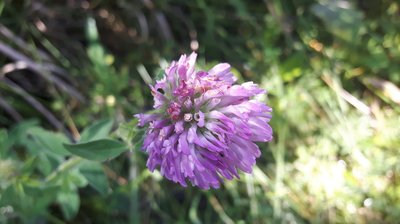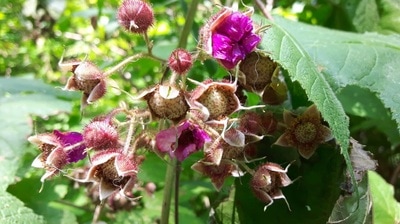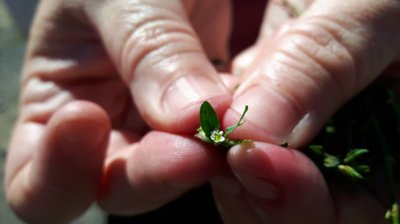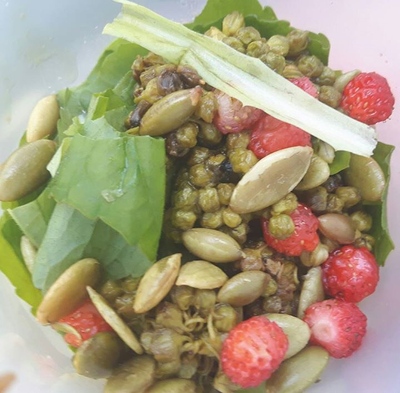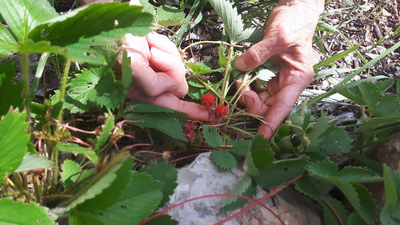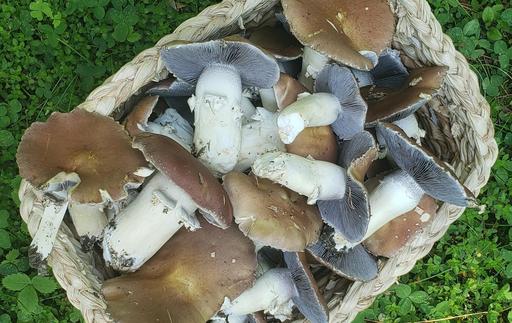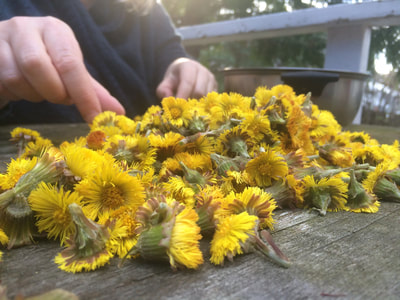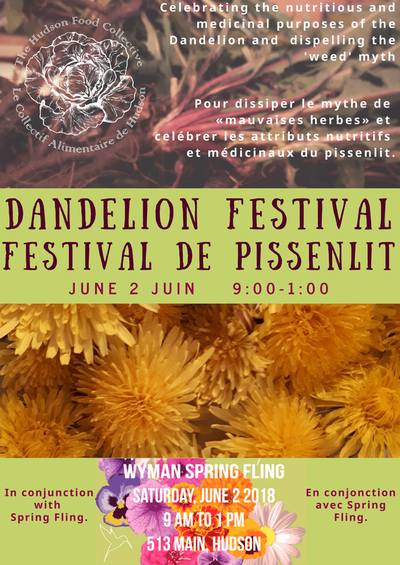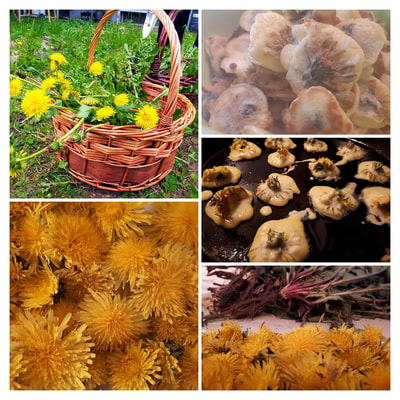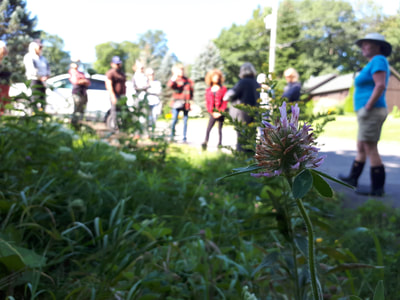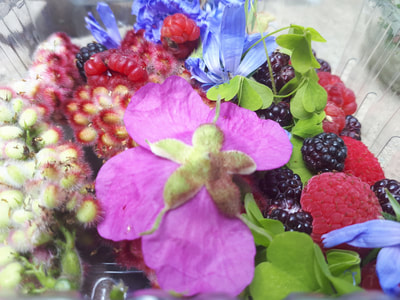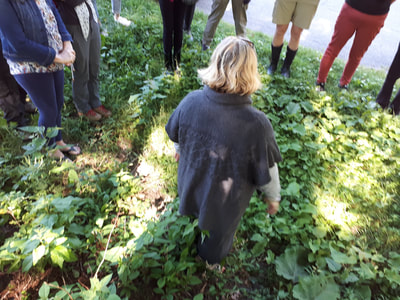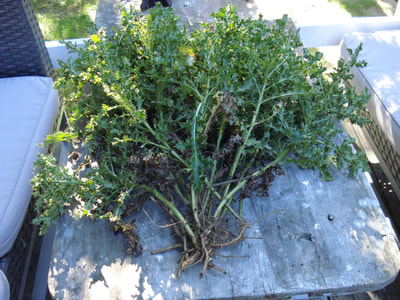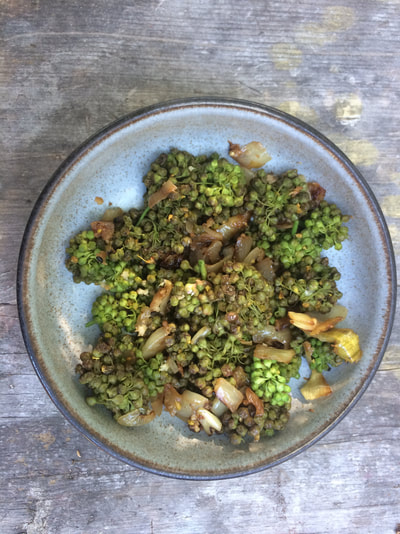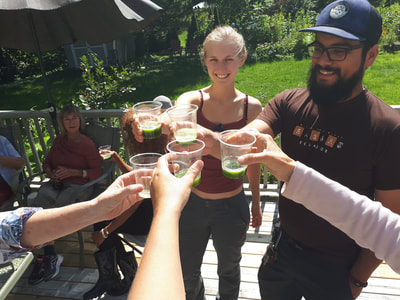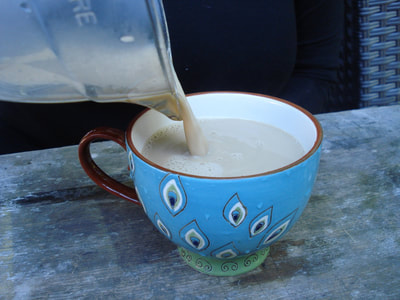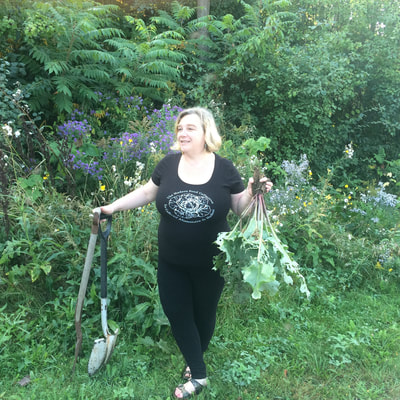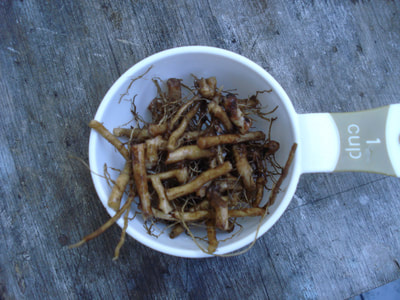2021 Wild Edible Series
|
This summer, as part of our Summer Workshop Series at the Hudson Heartbeet Community farm, we are super excited to have Jess of Landmade hosting a series of wild edible walking tours in Hudson - 'Foraging and Feasting: Learn wild edible plants and mushrooms'. The first two 1-hour tours with Jess will be held Sunday, 25th July, 11:00AM-12:00AM and 12:45-1:45PM.
The focus of the tours will be to learn how to identify and safely forage some of Quebec's wild edible leaves, fruits, roots, and shoots, and to offer some great ideas for using them in meals and drinks. Hear about how different plants are edible at different times of the year, and which ones you can sustainably harvest to use at home. Please note, although there will be opportunities to nibble on a few things here and there, the tours are educational only, not for gathering and taking home food. |
Register in advance for one HERE.
Photos taken from the 2016 and 2017
Wild Edible Series and courtesy of Landmade :)
Wild Edible Series and courtesy of Landmade :)
